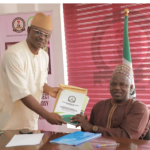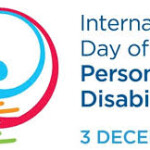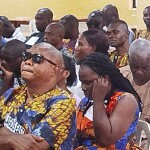Having a new helmsman at their commission, many PWDs expected a breather from years of recycling budget items. Maybe change doesn’t mean fresh.
By Gideon Oladimeji
Ayuba Gufwan has two goals topping his laundry list in the 2025 budget before the National Assembly. One is to buy operational vehicles for the National Commission for Persons With Disability—for the nth time. That line item will gulp N100 million of the N1.04 billion he proposes for capital expenditure (capex).
Allotting chunks of the commission’s budget to buying operational vehicles annually predates Executive Secretary Gufwan’s administration. His predecessor James Lalu did that for four of the five years he spent in the saddle. The line item got N200 million in 2024. But a years-long fleet of Hiluxes and SUVs are never enough in the service of the commission. Or the item is just an annual filler.
Gufwan’s second priority is construction or purchase of zonal offices. Again, nothing new. The difference is the new ES is committing N100 million to it, compared to Lalu’s N310 million last year.
And that difference probably speaks to the shades of character between the two kinsmen. The former ES, a PhD holder in economics (education), can use money: his last budget stood in the region of N4 billion. Over 75 percent of it went for capex on 25 projects. But Gufwan, a lawyer and doctor of divinity, is a kobo-nurser: his total capex rises shy of N1 billion for 33 projects. Maybe he wants to entrench a culture of frugality by not asking for too much.
The federal government balloons the 2025 budget (proposal) to about N50 trillion, up from about N28 trillion in 2024, indicating a 79 percent increase. So it’s not about battening down the hatches in an economic headwind. And, at its level, the NCPWD has no reason to cut back on its spending. Except its budget items lacks utility, and are out of line with the provisions of the Discrimination Act 2018.
How much does the commission even need to carry out its main responsibility of mainstreaming disability (not executing brick-and-mortar projects) in Nigeria?
It starts with the ES accepting such as the NCPWD’s major responsibility. Lalu didn’t. He believed, rather, in signing caches of MoUs for white elephant projects: constructing federal roads (Imo), setting up assistive tools factory, building a health center (Plateau) and others. All these would guzzle billions to execute; and in case it’s millions that trickle down, funding such items engenders waste that feeds corruption.
Since his appointment, Ayuba, however, has been barnstorming MDAs around Abuja, pushing disability policies. Wage and Salary Commission, Defence Headquarters, the National Commission for Colleges of Education, and others have hosted him.
It doesn’t cost millions to do that.
Maybe it’s just Gufwan’s way of familiarizing as the new ES—not that he has the conviction that entrenching disability in MDAs is his core duty. Besides, mainstreaming disability through policies goes beyond making rounds of courtesy calls.
But, certainly, the two executive secretaries—or anyone else in charge—stamp their images on their respective administrations. What doesn’t change much is the imprudence that has always plagued the NCPWD budgeting. And the commission slathers it all over the 2025 budget proposal.
Out of the 33 capital projects for the year, 18 are on-going while 15 are new. Among the on-going ones are collection of relevant data, issuing permanent disability certificates, bulk purchase of assistive devices, purchase or construction of zonal offices, purchase of vehicles, and others. Many of them have been on-going since 2021 when the commission started budgeting. Despite that, the commission can’t account for the implementation of the zonal office purchase spending, the disability certificates, the data gathering, among other budget items.
Lalu didn’t respond to many ER requests to verify these; he wouldn’t confirm the fund released for the projects, either. In the perennial list, the braille production centre is one of the few on the ground. And it’s just about of no service. The press hasn’t been getting braille orders, according to ER findings. But the centre keeps popping up every year in the budget.
Gufwan might have whittled down the votes for the never-ending projects; the reduction only does little to help. It might have even squashed all hopes for the performance of many of these year’s items.
Take the ‘new’ projects for instance. The item Special Intervention for Design and Construction of Accessibility Facilities in 36 tertiary institutions across the nation get N20 million as vote. Since the planners are no jokers, then they have their motivation. And many Nigerians with disabilities will want to scrutinize it, considering a construction industry battling 34 percent inflation. From their experience, budget watchers know how such miserable capital votes for big-ticket projects end up falling into procurement cracks—if the fund ever comes.
The list of those items and their votes runs on in the 2025 budget: menstrual health promotion for girls with disabilities, N5 million; spotlight on government media, N5 million; and so on.
That budgeting pattern started under Lalu. It seems Gufwan doesn’t mind borrowing a leaf. Consider his inter-agency activities to mainstream disability gulping between N10 million and N20 million each. The disability law has made provisions binding MDAs to respect PWDs’ rights. It’s just for the commission to develop frameworks for implementing the provisions. Proposing N70 million to flog seven of such projects hints at something disability experts have always concluded: the desk jockeys running the commission lack ideas and technical know-how.
The commission also likes to tag many of the projects ‘new’. Not exactly so. Most of the items have been recurring for years. Like Lalu’s African Union Disability Summit which lacked information about the promoter and the timing; it just gets a local content this year—as Nigerian Disability Summit. Gufwan is dealing out N40 million for that, compared to N100 million his predecessor budgeted last year. Among this year’s 33 items, only nine are new in every sense, and no fewer than three of them are variations of other items: training, design, and construction of model accessible buildings and plans; mass awareness programme, and TV spotlight; disability mainstreaming in the private sector, and in the MDAs. Seven of these get N10 million each.
Lukman Salami, JONAPWD Lagos chairman, and others disability analysts have maintained the NCPWD has no business delivering edifices or taking over PWDs’ health care, education, or sports. Its core responsibility, their argument goes, is espousing disability to the private and the public sectors to make it part of the systems. Except in such cases the disability law states otherwise.
Sections 38 f, j , l, r, entrust the commission with provision of a database, disability certificates, establish and promote inclusive schools, and supply of assistive devices respectively. The four have become features on the NCPWD budget spreadsheets year in year out. They got N160 million, N50 million, N40 million, and N600 million, in that order, in the 2024 budget. This year, the commission earmarked N60 million, N35.6 million, zero vote for inclusive education and vocation, and N50 million respectively. Only that there is no database yet. Nor are there certificates.
This poor performance has been going on for years. And it may continue for many more. The commission has no regard for the accountability and transparency measures the Bureau of Public Procurement and CSOs put in place. And its enablers on the commission’s board and the House committee on disability don’t care a bit about transparency.
Over the years, ER has been requesting, through the FOI Act, for the commission’s details of contract awards and project execution over the years. No success yet. But the investigation managed to open the lid on the cauldron of budget corruption under Lalu.
The rot has robbed more than 30 million PWDs of the good bargains they expect from the government annual spending on disability. The robbery will continue until the commission stops budgeting for—and spending on—items that have no utility—items whose procurement lacks transparency.
Gufwan should like to make a change here—in his priority list in particular.







